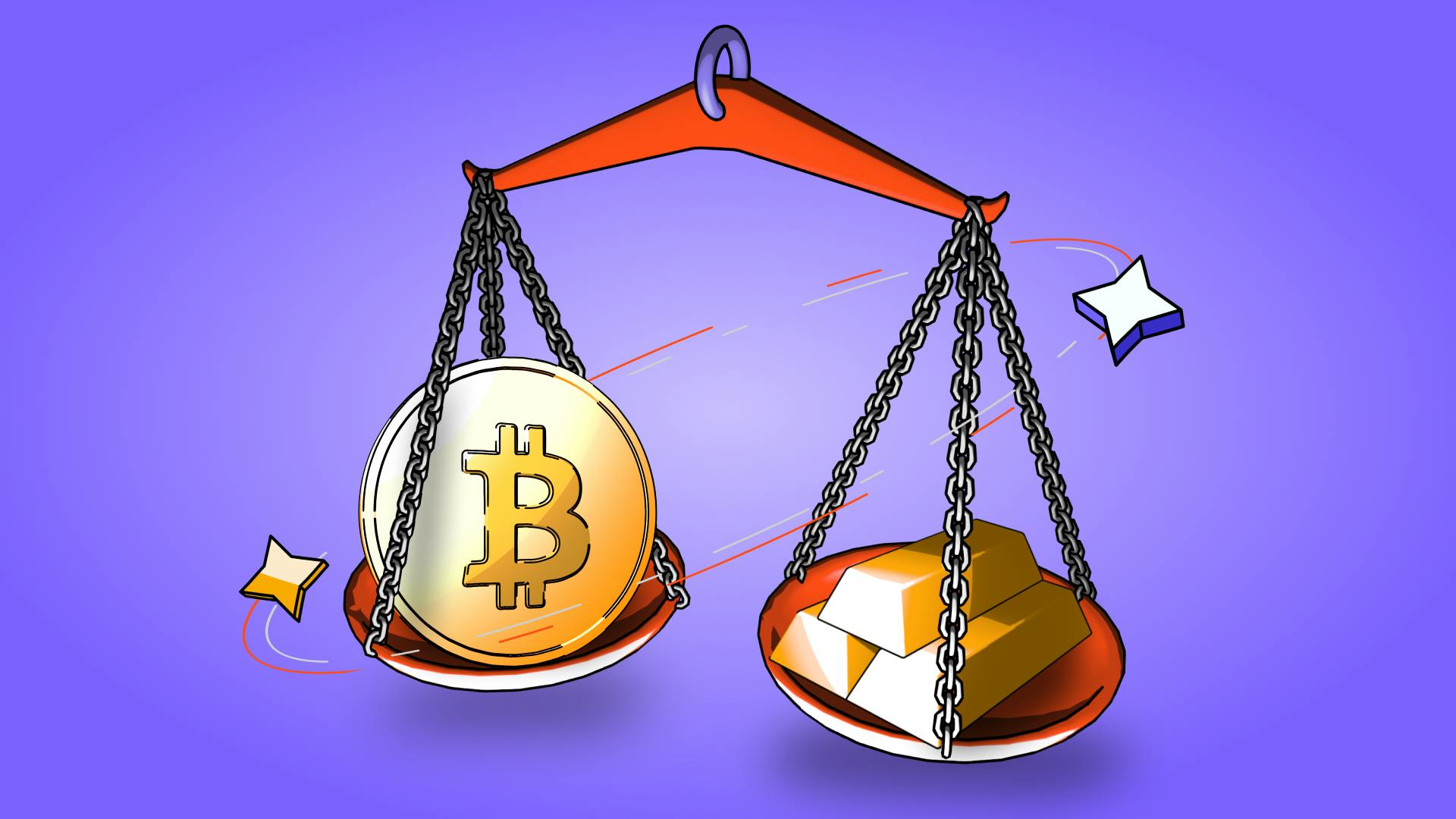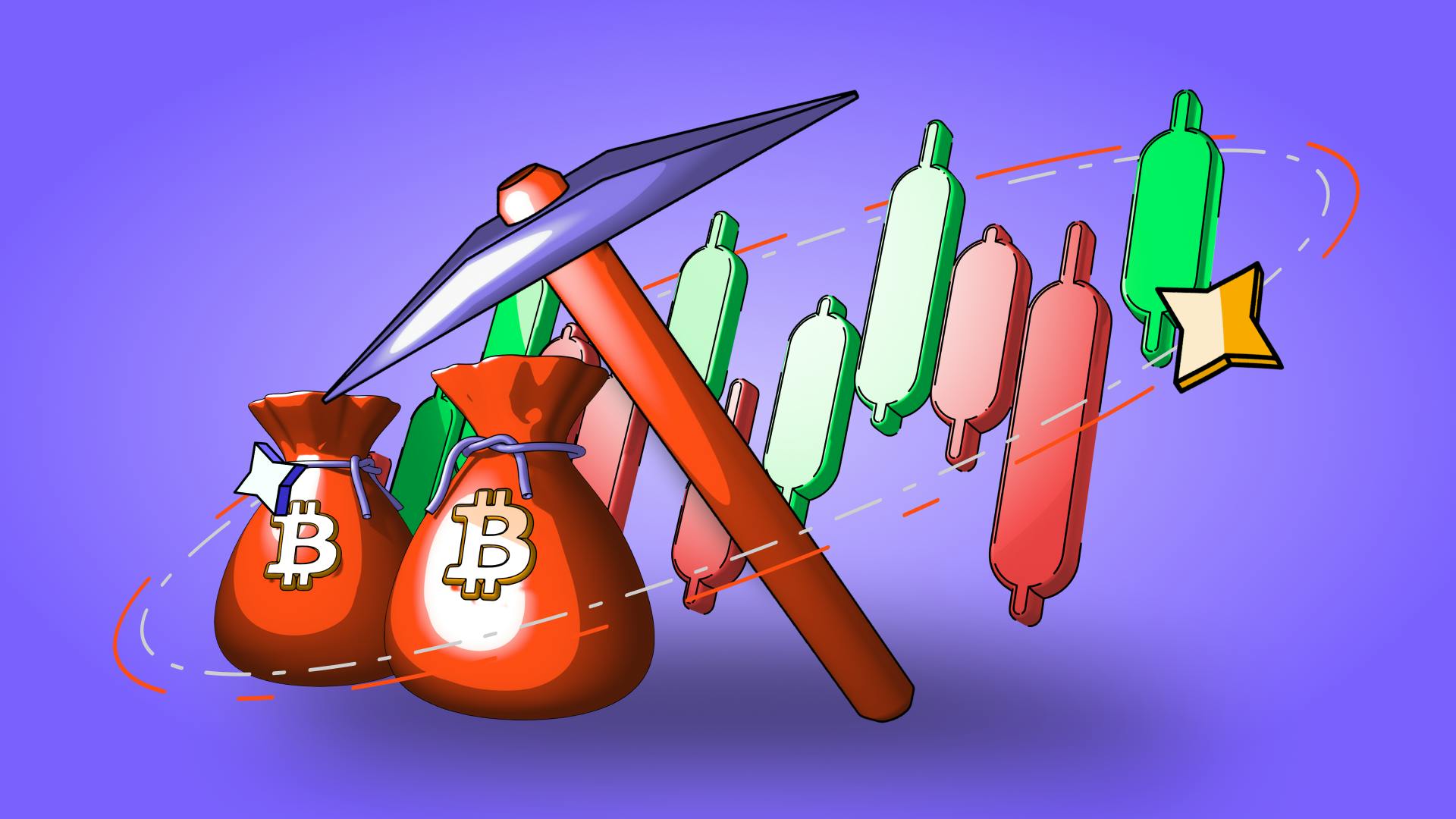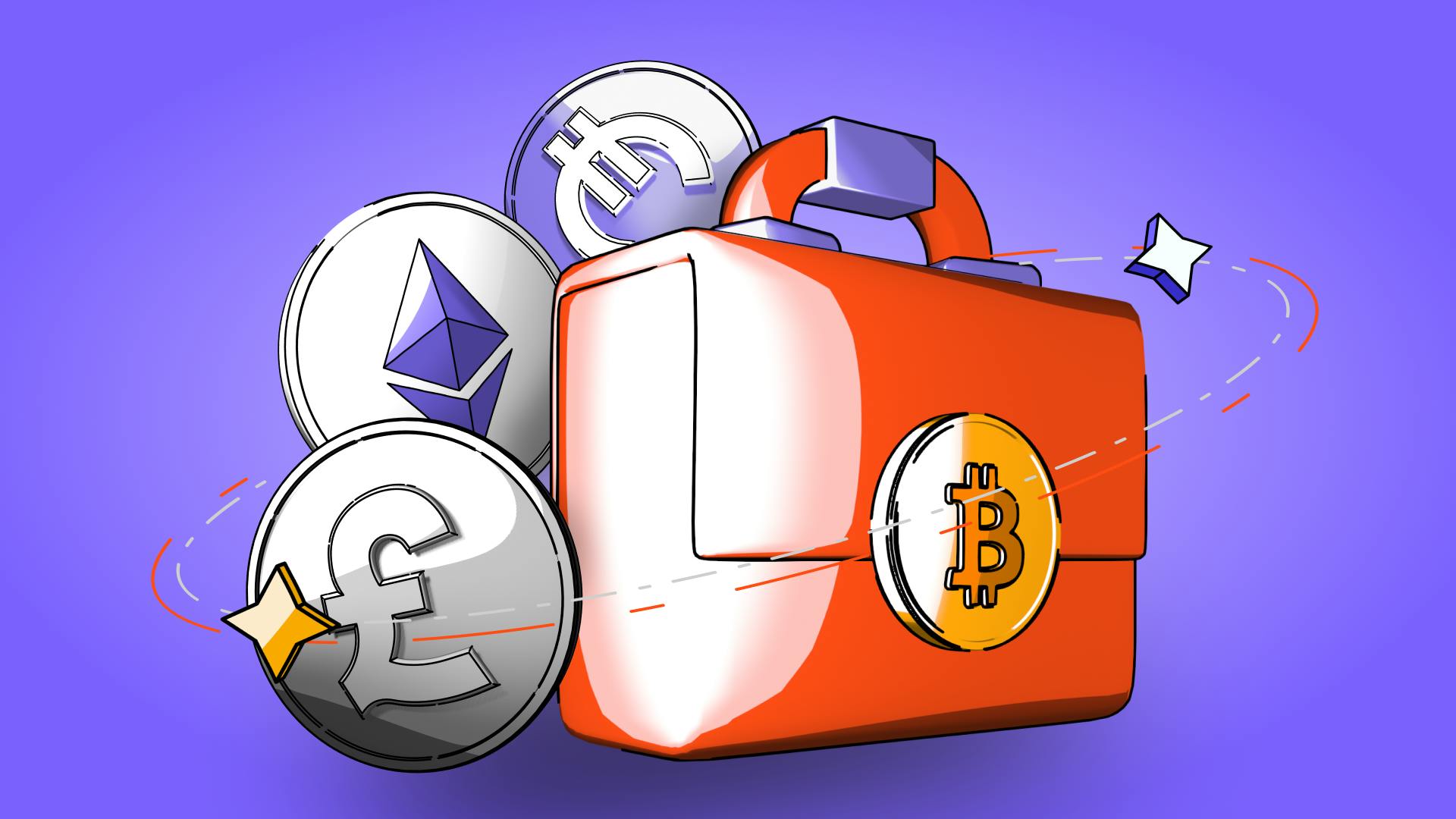Bitcoin vs. Gold: A Comparative Analysis
October 2, 2024

by Coinmetro Editorial Team
October 2, 2024
Bitcoin and gold are two popular assets that have captured the attention of investors globally. While gold has been used for centuries as a reliable store of value, Bitcoin, created in 2009, is a digital asset that has become a modern investment option. Each serves to preserve wealth but differs significantly in some of its attributes and potential.
This comparison matters because both assets are seen as alternatives to traditional fiat currencies in today's uncertain financial environment. Investors often debate which asset offers better protection against inflation and market volatility. By understanding their core differences, you can make a more informed investment decision.
In this article, we will compare Bitcoin and gold based on key factors: scarcity, portability, divisibility, and their effectiveness as stores of value.
You will learn about:
- Origins and history
- Scarcity and supply
- Store of value
- Portability and divisibility
- Accessibility and security
- Market performance and volatility
- Use cases and future potential
Bitcoin was created in 2009 by an anonymous developer known as Satoshi Nakamoto. It emerged during the global financial crisis as a peer-to-peer decentralized digital currency, offering a way to bypass traditional financial institutions. The introduction of blockchain technology, which securely records transactions, fueled Bitcoin's popularity. Over the years, Bitcoin has attracted a large following, becoming known as "digital gold" due to its limited supply of 21 million coins and potential for long-term value.
Gold has a long history, having been used as a currency and store of value for thousands of years. Civilizations worldwide have relied on gold to back their economies and stabilize their currencies. Before the shift to fiat money, gold was directly tied to economic stability, as countries used it to back their paper currencies. Even today, it remains a trusted asset, known for holding value during inflation and economic uncertainty.
Bitcoin has a capped supply of 21 million coins, which ensures its scarcity. No more can ever be created once all 21 million coins are mined. Bitcoin's supply decreases over time through "halving events." These events, which happen roughly every four years, cut the reward miners receive in half, reducing the rate at which new Bitcoin enters circulation. This process increases scarcity and has influenced Bitcoin's value throughout the years. Mining, controlled by the blockchain, regulates Bitcoin's supply and ensures no central authority can manipulate it.
The earth's resources naturally limit gold's supply. New gold discoveries are rare, but supply can increase as mining operations extract more gold. However, the rate of new discoveries has slowed significantly over the years, contributing to its scarcity. Advances in mining technology may boost production slightly, but these advancements have a limited impact on the total supply of gold, making it a relatively stable asset over time.
Approximately 3,500 metric tons of gold are extracted and brought to market annually. This production comes from global mining operations, with countries like China, Russia, and Australia being the top producers. Global mine production has remained fairly stable over the last few years, and while technological advancements help in extraction, significant new discoveries of gold are rare.
It is estimated that about 212,000 metric tons of gold have been mined throughout history. Due to the metal's durability, a large portion of this gold is still in circulation, with nearly all of it still being used in various forms, such as jewelry, bars, coins, and central bank reserves.
Bitcoin has experienced significant volatility, but this characteristic reflects its liquidity and the fact that it can be traded anytime, 24/7. While early adopters benefited from Bitcoin’s rapid price appreciation, its role as a store of value has gained broader recognition, especially with increasing inflation concerns globally. More investors, including institutions, consider Bitcoin a hedge against inflation. The approval of Bitcoin ETFs in January 2024 has attracted new categories of investors, further solidifying its position in portfolios as a store of value. Although Bitcoin remains volatile, its volatility has gradually decreased over the years, signaling a maturing market. This volatility reduction and increased liquidity support Bitcoin’s growing reputation as a modern alternative to gold for wealth preservation.
Gold has long been a stable store of value, with slow and steady price movements. This stability makes it a popular safe-haven asset during economic downturns. Its history as an inflation hedge and wealth preserver dates back centuries. Investors often turn to gold to diversify portfolios, as it tends to perform well when other assets like stocks decline, offering a buffer against market volatility.
Bitcoin is fully digital, allowing it to be transferred across the globe within minutes. Its portability is unmatched, as users can send and receive Bitcoin anywhere with internet access. Bitcoin is also highly divisible, down to 8 decimal places (the smallest unit is called a “satoshi”), making trading in small or large amounts easy. This divisibility allows users to transact in tiny fractions, offering great flexibility. Compared to gold, Bitcoin has low transaction costs, especially for large transfers, making it a more practical option for moving significant amounts of value.
Gold, in contrast, is heavy and difficult to move in large quantities. Transporting physical gold involves high costs and risks, especially across borders, requiring secure storage and shipment. Dividing gold into smaller units can also lead to a loss in value or added fees. For example, breaking down a gold bar into smaller pieces reduces the premium or makes the process more expensive. These challenges make gold less practical for frequent or large-scale transfers than Bitcoin.
Bitcoin requires an internet connection and a basic understanding of digital wallets, blockchain technology, and security practices. This may make it less accessible for users unfamiliar with technology. Security risks like hacking, scams, and regulatory issues also pose challenges. While the Bitcoin blockchain has not suffered any breach yet, cryptocurrency exchanges and digital wallets, where users often store their Bitcoin, have faced hacking incidents in the past, resulting in losses for users. However, many users now use reputable exchanges and employ stronger security measures such as two-factor authentication (2FA), cold storage (offline wallets), and asset insurance to mitigate risks.
As of 2024, approximately 106 million people worldwide own Bitcoin, representing around 1.3% of the global population. While still in its early stages, Bitcoin adoption continues to grow, with interest driven by its potential as a store of value, inflation hedge, and investment vehicle. Ownership is concentrated among tech-savvy and younger generations, particularly in regions with high inflation or financial instability. Still, with the introduction of the ETFs, this demography is gradually becoming more diverse.
Gold is simpler to own in its physical form, and you can store it in vaults, safes, or other secure locations. While owning physical gold eliminates the need for technical knowledge, it presents different security challenges, like theft. If gold isn't securely stored, its physical nature makes it vulnerable to being stolen or lost. However, physical gold can be stored in bank vaults or with custodial services to reduce these risks. Gold can also be accessed through traditional financial systems, such as purchasing gold ETFs or through direct ownership of coins and bars, making it accessible to many investors.
Currently, around 12-14% of the world's population owns some form of gold as an investment. This includes ownership in physical forms like bars, coins, and jewelry and through gold-backed investment vehicles such as ETFs (Exchange-Traded Funds).
Bitcoin’s market performance has been characterized by extreme volatility, with rapid price surges followed by deep corrections. Its history includes dramatic highs—such as the 2021 surge to over $60,000—and equally sharp declines, including 50% or more drops within short periods. This volatility is largely driven by economic cycles, government policy, media coverage, and investor sentiment. Public announcements, regulations, or even tweets from influential figures can cause significant price fluctuations.
However, institutional adoption, particularly with the approval of Bitcoin ETFs in 2024, has introduced new players into the space. This shift can stabilize Bitcoin’s price over time by increasing liquidity and reducing speculative trading. Still, Bitcoin’s volatility remains a major factor in its overall market behavior. Even so, Bitcoin has one of the most rapid adoptions and evolution among all financial assets.
Gold has a long history of stable, slow growth. Unlike Bitcoin, its price movements are less volatile and more predictable. Gold typically rises during economic crises or when fiat currencies weaken, making it a reliable haven for investors. For instance, gold prices surged during the 2008 financial crisis as other assets declined.
However, gold has also experienced bear markets that lasted for years. From 2012 to 2016, gold lost approximately 45% of its value. After reaching a peak in 2011, prices steadily declined from around $1,900 per ounce to about $1,050 by the end of 2015. This period demonstrated that gold is generally stable but can still experience significant long-term declines under certain market conditions.
Bitcoin has evolved from a digital currency used primarily for transactions into a financial asset held by institutions. Companies like MicroStrategy, Block (formerly Square), and Tesla have added Bitcoin to their balance sheets, signaling growing confidence in Bitcoin as a store of value. Beyond institutional investment, Bitcoin plays a major role in decentralized finance (DeFi), where users can lend, borrow, and trade without intermediaries. It's also a popular means of remittance, allowing people to send money across borders quickly and at lower fees than traditional services.
Furthermore, governments like El Salvador and Bhutan have openly acknowledged the potential of the king digital asset and are holding significant amounts of BTC.
Another emerging trend is earning yield on Bitcoin. Through DeFi platforms and centralized services, users can earn interest on their Bitcoin holdings by lending them out. This adds utility to Bitcoin beyond just holding it as an asset. Finally, Bitcoin can disrupt traditional banking systems, offering a decentralized, permissionless alternative to legacy financial institutions. If this trend continues, it could reshape global finance by removing intermediaries and reducing transaction costs.
Gold's primary use cases remain jewelry, electronics, and monetary reserves. While it lacks the innovation seen with Bitcoin, gold has a long-standing role in central bank reserves. Many countries hold large quantities of gold to hedge against economic uncertainty, as gold can maintain value even when currencies weaken. In addition, gold is often used for asset diversification in investment portfolios, particularly during economic downturns.
Though gold's applications have not evolved much, its demand remains steady due to its historical reliability and stability. It continues to be seen as a safe asset, particularly during inflation or financial instability, even if its future innovation potential is limited compared to Bitcoin.
Bitcoin and gold each offer unique strengths as investment assets. Bitcoin's main advantages lie in its digital nature, high liquidity, and potential for rapid price appreciation. Its ability to be traded 24/7 and its growing use in decentralized finance make it a disruptive force in traditional finance. However, its volatility can be a risk for more conservative investors. On the other hand, gold is known for its stability and long-standing reputation as a safe haven during economic downturns. Its value is less affected by short-term market speculation, making it ideal for risk-averse investors seeking steady, long-term growth.
Bitcoin is a good option for those with a higher risk tolerance who believe in its potential for future growth and disruption of traditional financial systems. However, Bitcoin has matured into a more reputable asset, which governments and institutions are increasingly embracing. This institutional adoption, along with Bitcoin ETFs, has begun to stabilize the asset, and it's expected to become less volatile over time. More and more people are starting to understand that BTC can work as a hedge against inflation or better than gold.
On the other hand, gold is a better fit for those looking for more stability. If you aim to preserve wealth during economic uncertainty, inflation, or currency devaluation, gold provides a tried-and-true solution.
As global economic trends shift, both assets will continue to play critical roles in investment strategies. Bitcoin's institutional adoption and integration into the financial system could increase stability and legitimacy over time, making it a more mainstream asset. Meanwhile, gold will remain a key player in central bank reserves and continue to serve as a hedge against economic instability. As inflationary pressures persist and global financial systems evolve, Bitcoin and gold will likely see sustained demand.
Join the Coinmetro community on DiscordandTelegram, where forward-thinking traders and investors gather to share insights, explore new opportunities, and dive deep into cryptocurrencies. Should you need any help, please contact our world-class Customer Support Team via 24/7 live chator email at hello@coinmetro.com.
To become a Coinmetro user today,Sign Upnow or head toour new Exchangeif you are already registered to experience our premium trading platform.
Tags
Related Articles

MEV (Maximal Extractable Value) Explained: Impact on Traders
Maximal Extractable Value (MEV) plays an important role in decentralized finance (DeFi), affecting how traders execute transactions on blockchain…
6m

Crypto Tax Loss Harvesting Strategies
Cryptocurrency investments have gained popularity, offering both opportunities and tax responsibilities. The Internal Revenue Service (IRS)…
6m

Crypto Demo Trading: Practice Risk-free “Paper Trading”
Crypto demo, or paper trading, allows you to practice trading without financial risk. It simulates real market conditions but uses virtual money…
6m

Crypto Market Making: How It Works
Ever wondered how crypto exchanges maintain liquidity and stability in volatile markets? Crypto market making is vital in ensuring smooth…
6m